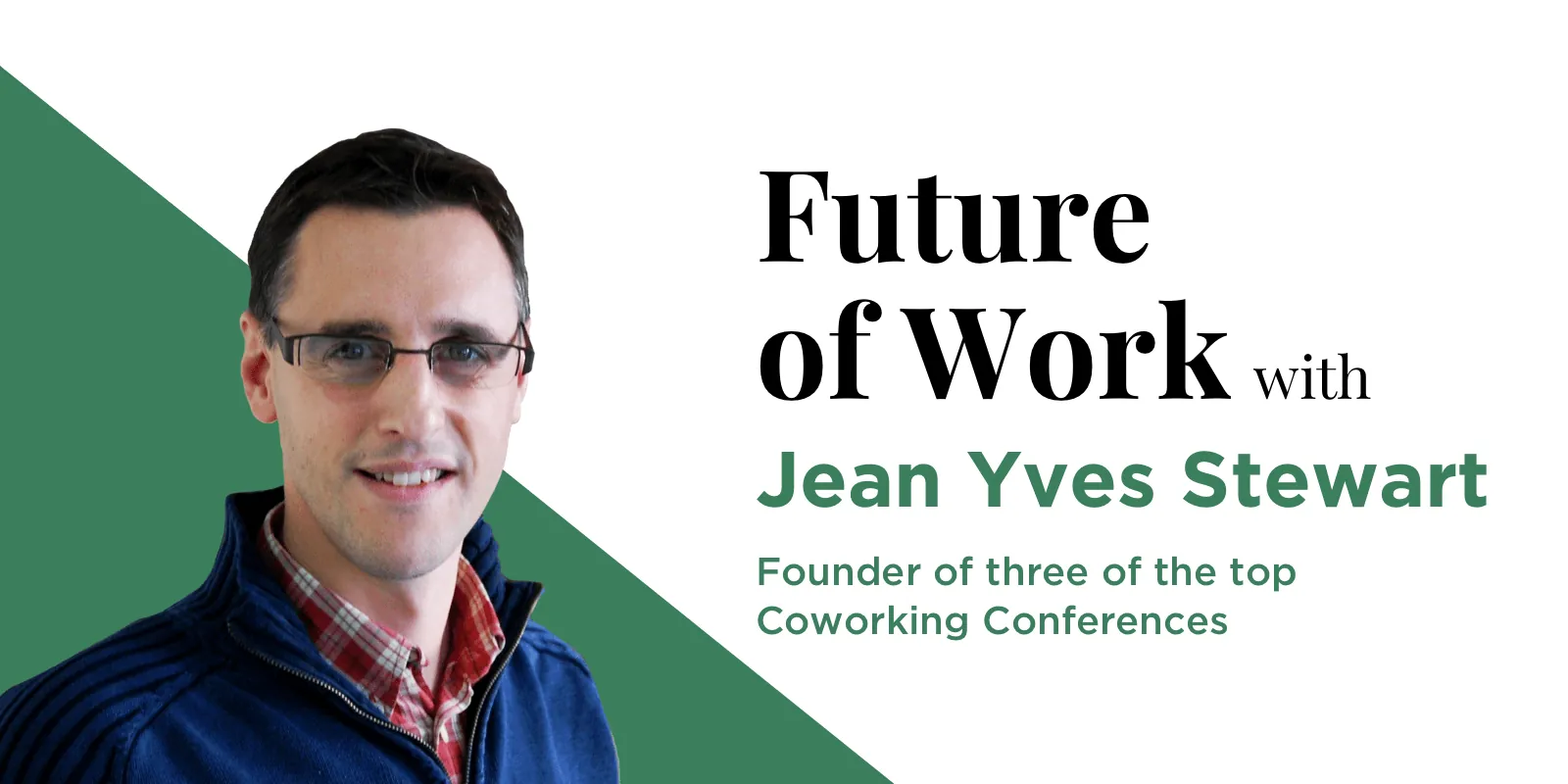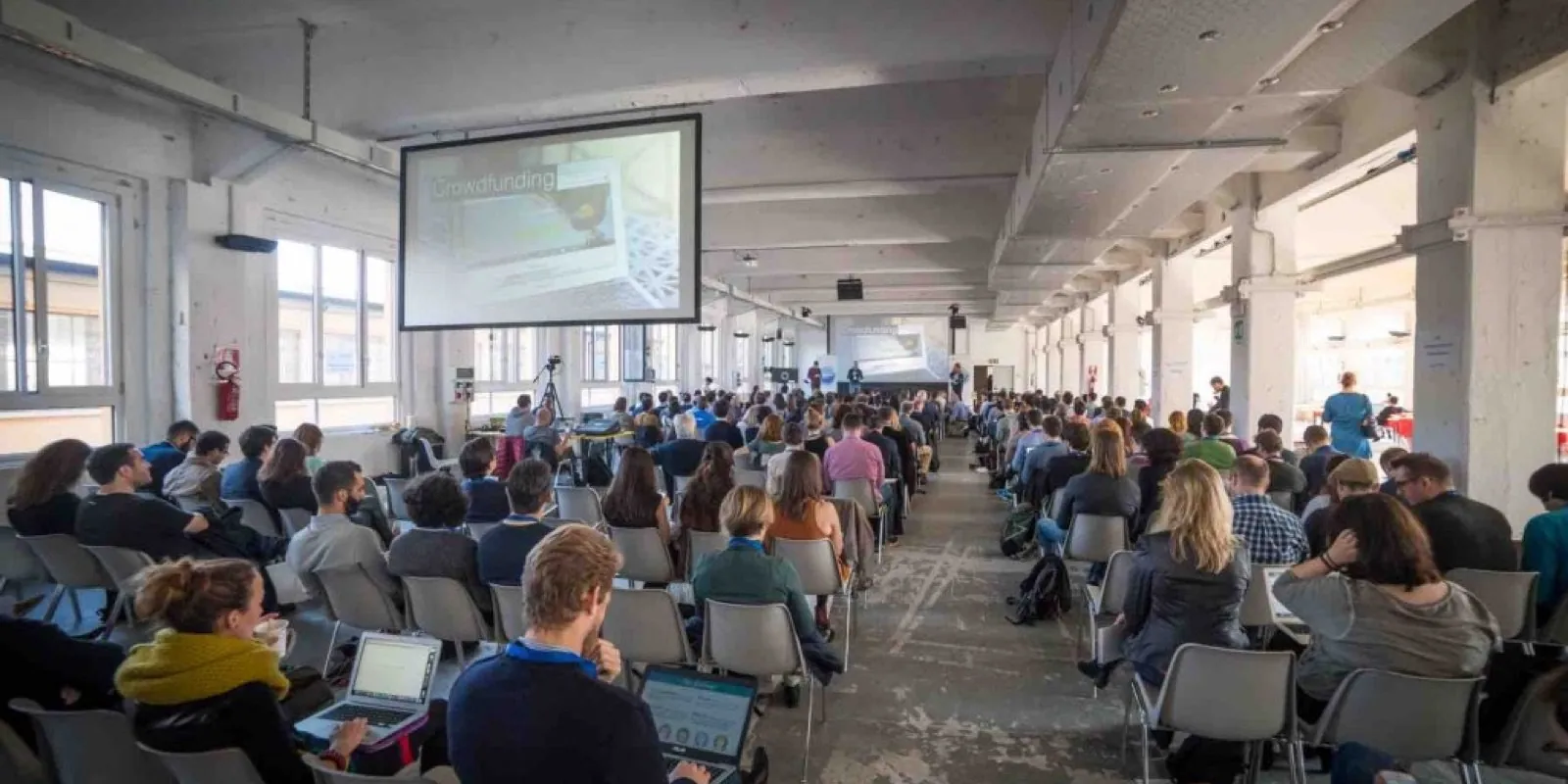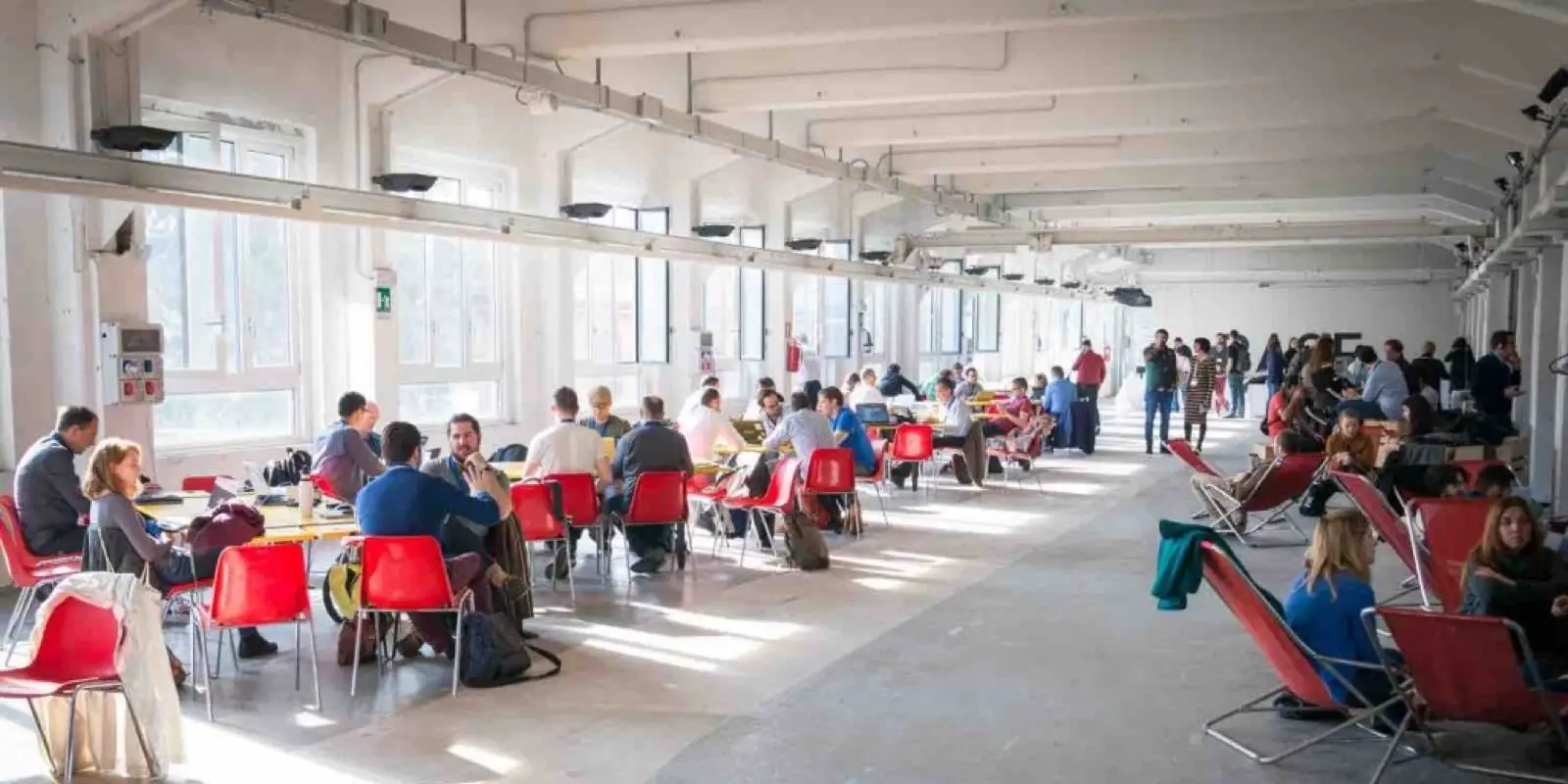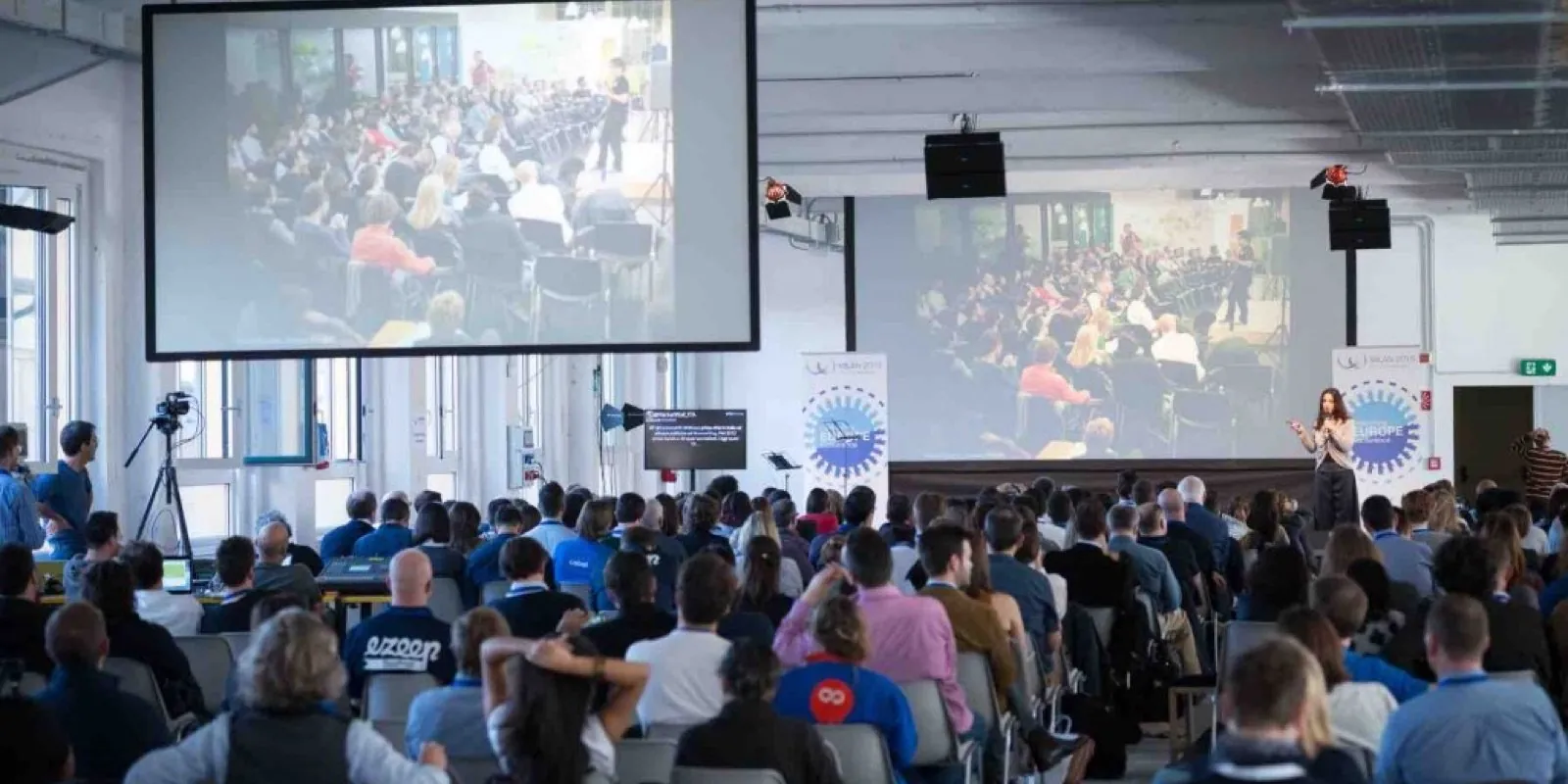
This week we had a chance to chat with Jean-Yves Huwart, one of the pioneers in the coworking movement. While working with a group of freelancers in 2009 in one of Brussels’ early coworking spaces, he thought it would be interesting to start a coworking conference.

Fast forward seven years later and Jean-Yves has founded not one but three game-changing coworking conferences: Coworking Europe, Coworking Africa, and The Social Workplace Conference. We were very excited to speak with him, to say the least.
Coworking Europe: the early days
When asking Jean-Yves what ‘the early days’ were like, he shared the with us the early indicators that suggested coworking as a movement would one day go mainstream.
“In 2010, we were thinking this [coworking] will be huge and now it is huge. I can’t say it better than that. However, at that time most of the spaces were small with not very many people. Most of the people that were running those spaces were doing so on the side; it was not their main job, but they were definitely contributing to many people in the communities that were surrounding them that were looking for a place work and to connect with like-minded people.”Jean-Yves Huwart

Jean-Yves held the first coworking conference in 2010 and expected 50-60 people to show up. To his surprise, 150 people attended from across Europe and North America. He acknowledged that some countries had further developed coworking scenes over others and in North America the boom was obvious and accelerating. He was fascinated by the fact that different kinds of people were becoming interested in coworking.
What is coworking?
Jean-Yves discussed the difficulties in defining “coworking” during the early days of the movement and how that confusion still persists in some cases today. We asked if he had a way of explaining what coworking was and how it is different than another type of office space. He shared that the main element for him is a feeling of belonging that a coworking space is able to create.
“It’s about the people, the connections and the sense of belonging. In coworking spaces people like you, they understand you, share with you, teach you, partner with you.”Jean-Yves Huwart

In Jean-Yves’ opinion, operating a shared office space with hot desks is not enough to make you a coworking space . He feels that hospitality is critical to running a successful coworking space and how the focus should be so much broader than just ‘running the facility.’ It’s the role of a coworking manager to help new members feel welcome and introduce them to other members in the space.
Coworking Africa: a learning experience
One of Jean-Yves’s more recent experiences was Coworking Africa, a conference for which he partnered with a local organization that wanted to start something local and organic but needed some help in getting it off the ground.
“We saw it as an opportunity. We have been running Coworking Europe for five years now, and wanted to replicate it in Africa. It was very challenging. Africa is so different from Europe and US — the challenges are totally different, even depending on what country within Africa you are in.”Jean-Yves Huwart

He talked about the need for coworking, for innovators and entrepreneurs to connect with each other and the rest of the world. When we asked him what the coworking movement was like in Africa he compared it to Europe in 2009. “There are at least one or two spaces in most capitals with a few places like Cape Town having much more,” says Jean-Yves. It is the beginning for Africa and there are still many challenges, for example access to electricity in many places.”
High real estate costs are another barrier to success. This is also why there is a high need for coworking, to give access and help to support the ecosystem of entrepreneurs that are unable to access space.
The growth of coworking
Jean-Yves is optimistic about the outlook for coworking and sees it as a common solution for many problems.
“It’s [setting up a coworking space] a no-brainer for a great number of people — when they want to stimulate innovation, structure the local ecosystem in a city, to make their employees feel better or to offer a service to growing number of freelance workers. The story is getting bigger and bigger. It’s a mega-trend. It’s a common solution for different issues people are facing and that’s why it’s becoming so big.”Jean-Yves Huwart
This year’s Coworking Europe Conference will take place in Brussels in November. With over 500 space operators and facilitators, it will be an event you won’t want to miss. You can learn more here.



